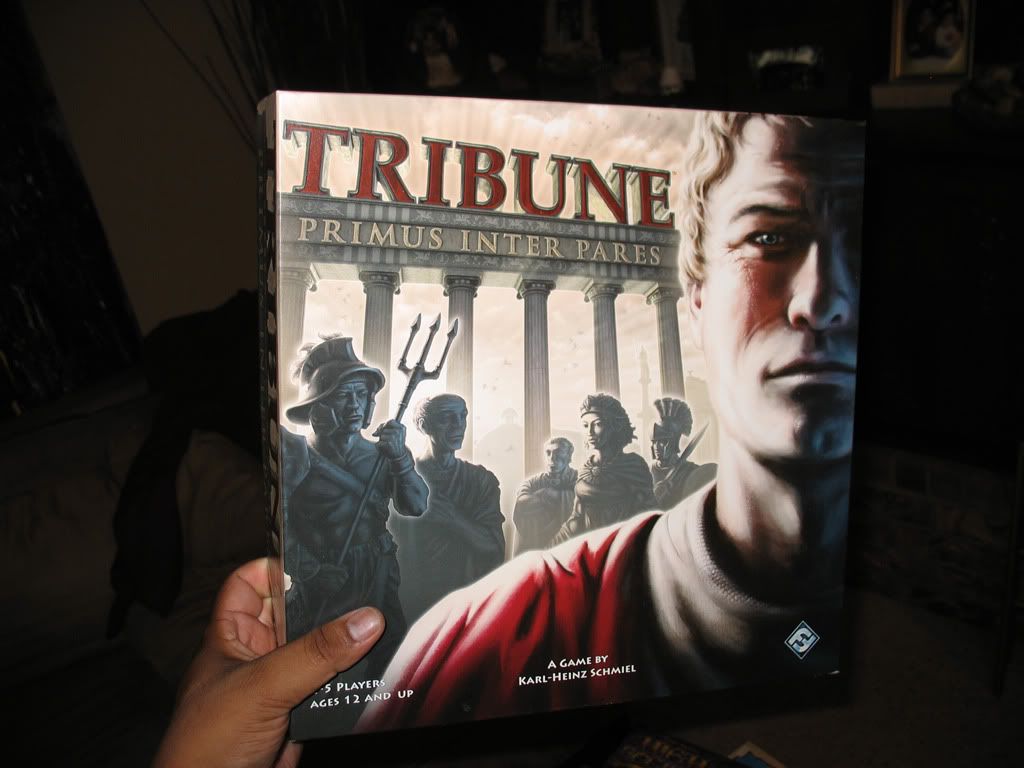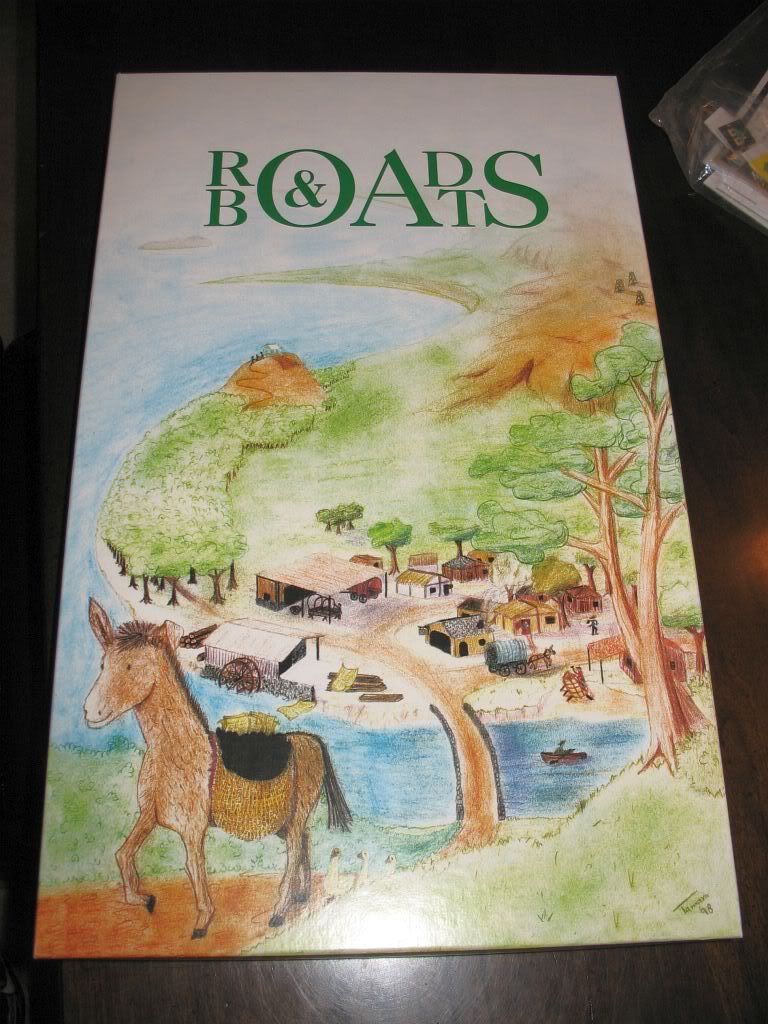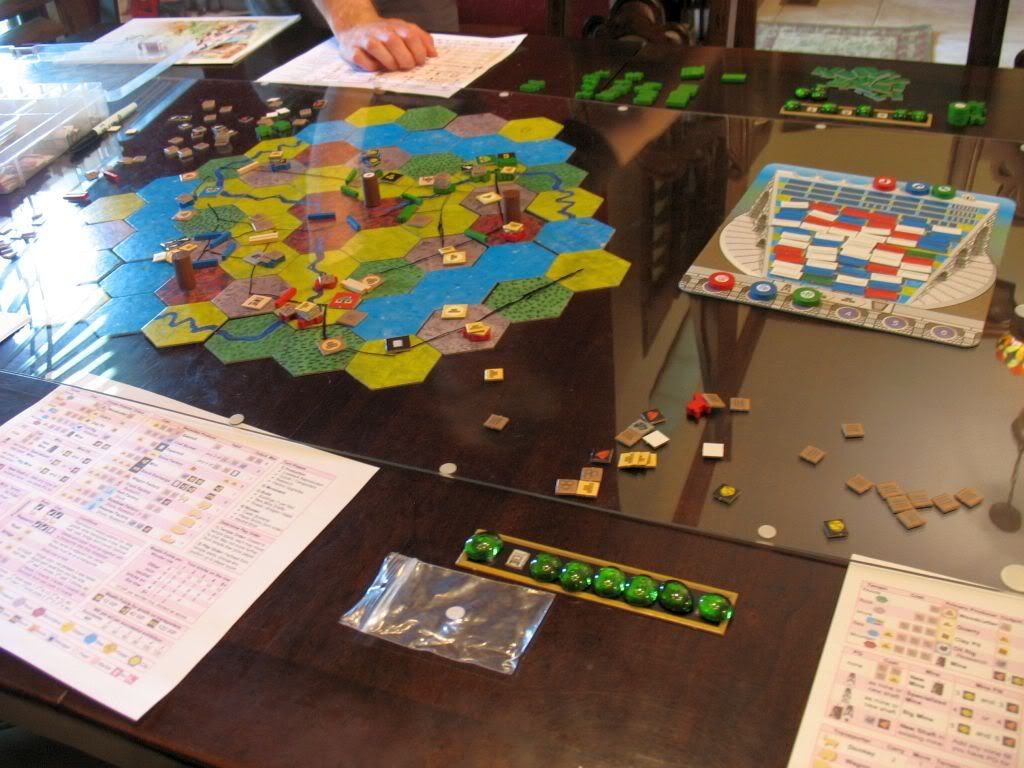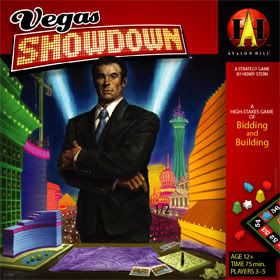 Most of the time when I review a game, it’s after one or two plays and it’s really more of an off-the-cuff first impression. This isn’t necessarily a bad thing, since I play a lot of games and if I really waited to review a game until after the 9th or 10th play I’d get even less done than I do now. This is why it’s nice to review a game like Vegas Showdown, a game I’ve played a lot and feel like I’ve got a pretty good handle on.
Most of the time when I review a game, it’s after one or two plays and it’s really more of an off-the-cuff first impression. This isn’t necessarily a bad thing, since I play a lot of games and if I really waited to review a game until after the 9th or 10th play I’d get even less done than I do now. This is why it’s nice to review a game like Vegas Showdown, a game I’ve played a lot and feel like I’ve got a pretty good handle on.Vegas Showdown is part puzzle game, part resource management exercise, and part auction game. Obviously it’s a Las Vegas themed game, as you take the role of a casino manager building the best place on the strip. You start with a blank grid, some money, and some people, and go from there. You add restaurants, games, lounges, and other attractions until the endgame conditions are met and a winner is declared. The winner is determined by a combination of casino design, accumulated fame, and money.
All this sounds very clinical, but there are plenty of random elements that keep the game interesting. There are events that can affect how much money you get in a round, what attractions you can and can’t buy, and other wacky effects. This can affect your overall strategy pretty quickly. The game is a lot of fun when you get on a roll, but it’s important to try and stay generalized and take a wider approach to your victory. The game has some mechanics to push you to generalize, but finding the right balance is tough. Often the winning player doesn’t have the highest income or the most employees, but has enough to do the things that they need to do to win.
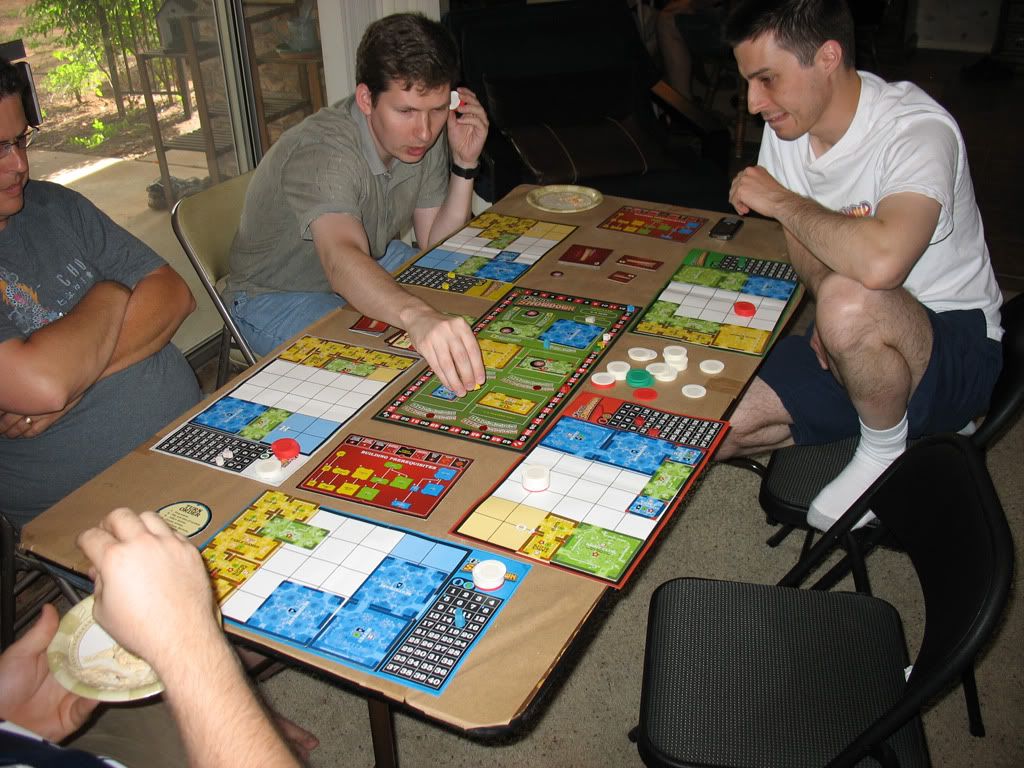
Vegas Showdown is a lot of fun, but even with all the random elements, it’s not as replayable as Twilight Imperium or Agricola, but it’s still interesting and makes for a good time. Its best played once in a while to stay fresh, but often enough so that you can try out new plans to make your place the best. It’s good enough to even forgive the rather minimalist art and board design. Overall, is a very solid game that should be hitting the game table with some regularity. 7/10.

